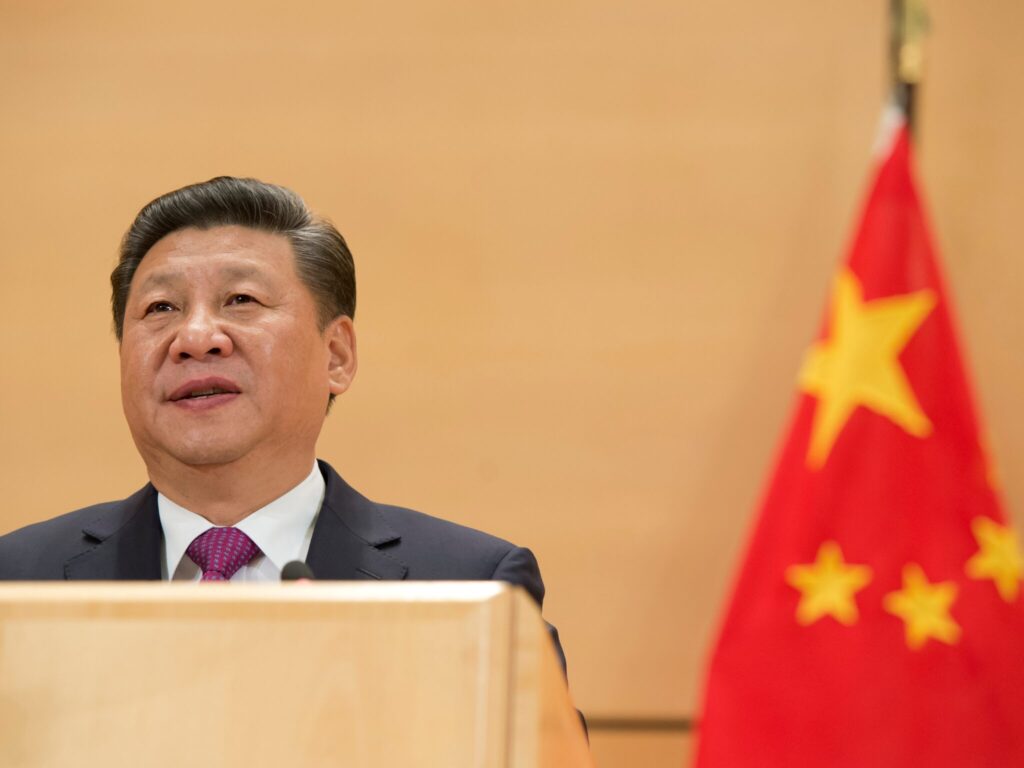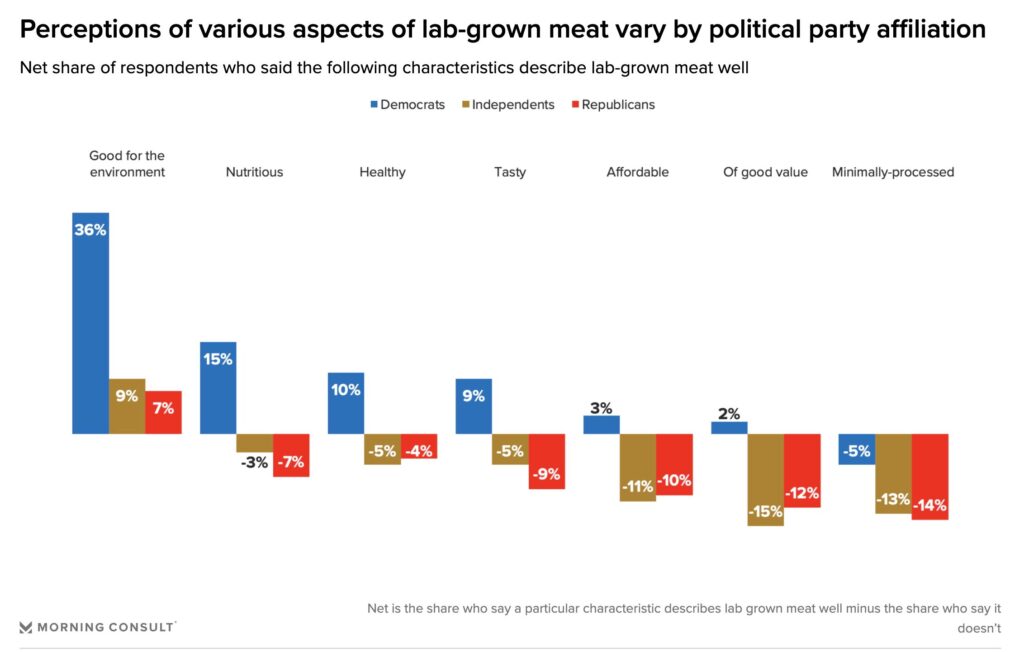
China’s potential biotech dominance – especially its progress with cultivated meat – has spurred Republicans to call for US action to ensure “continued leadership”.
What would it take for a Republican to support cultivated meat?
Could it be China’s progress in the sector? That’s one way to interpret a letter sent by 11 Republican Congress members to the director of national intelligence and the USDA’s director of homeland security last week.
First obtained by Politico’s Morning Agriculture newsletter, the letter was led by House Representatives Andrew Garbarino (R-NY) and Dan Newhouse (R-WA), in direct response to the national intelligence director’s annual threat assessment. That report labelled China’s strategic advancements in “synthetic biology and agricultural biotechnology” as an attempt to “lead the broader biotechnological landscape”.
China’s latest five-year plan for agricultural and rural tech development in 2021 calls for research in cultivated meat, alternative egg and dairy, and recombinant proteins, which the lawmakers described in their letter as China looking to “dominate global supply chains”.
China’s biotech strides and focus on cultivated meat

China has been making moves towards alternative protein as part of its national climate, economic, and public health targets. Its citizens are already eating more protein per capita than the US now, and most of this comes from animal-free sources.
Aside from the aforementioned agricultural strategy, the ongoing five-year bioeconomy development plan has outlined an advancement of man-made protein and novel foods. And it came just two months after President Xi Jinping called for a Grand Food Vision that included plant-based and microorganism-derived protein sources.
In 2020, the science and tech ministry launched the Green Biological Manufacturing initiative, which set aside ¥600M ($93M at the time) in funding for research projects – around ¥20M was said to be earmarked for cultivated meat and plant-based protein companies. Similarly, in 2021, the government announced a proect focused on high-efficiency biomanufacturing tech for meat analogues, led by agricultural science institute the Jiangnan University.
According to alternative protein think tank the Good Food Institute (GFI) APAC, the National Natural Science Foundation of China has backed many cultivated meat and plant-based research teams too, with similar funding mechanisms available at provincial and city levels.
Last year, Shanghai was the site of a meeting convened by the UN Food and Agriculture Organization, where cellular agriculture companies engaged with regulators over production processes and safety concerns.
GFI has further suggested that China’s cultivated meat sector has expanded in an environment that features much lower costs than Europe or the US, with local governments taking steps to ensure that the cost of equipment like bioreactors stays low.
Meanwhile, the national government has been encouraging citizens to eat fewer animal products and more plant proteins, as part of a broader drive to connect public health with socioeconomic development, which began with the Healthy China 2030 policy.
And then there’s the climate benefits: cultivated meat has a much lighter impact on the planet than industrial livestock production. China’s 30-60 climate policy is aimed at hitting peak emissions by 2030 and becoming carbon-neutral by 2060 – and research has shown that this will only be possible if half of all proteins consumed in the country come from alternative sources.
Republicans highlight the importance of alternative protein

The Congress members’ letter implored the US intelligence community to “conduct a focused analysis” on the potential impact of China’s advancements in innovative protein technologies, and its implications for the global food supply.
“Countries around the world are recognising the need to pursue innovative farming techniques to complement their existing agricultural structures,” the letter reads. “The innovative protein sector’s rapid evolution and its potential to reshape global food markets underscore the urgency of responding to these developments.”
Pointing to precedents that show how rapidly global trade patterns shift, the lawmakers write: “Should China secure a dominant position in the global innovative protein market, it could fundamentally alter food supply dynamics worldwide and give China control of key aspects of global food security dynamics.
“Put simply, we cannot allow China to control more of the world’s food supply than it already does. To cede American leadership in the global innovative protein market to foreign adversaries like China is to forfeit the food security of the United States and its allies.”
The Congress members conclude by asking the intelligence agencies to recommend strategic measures the US should consider to “ensure continued leadership and resilience in this critical sector”.
An indication of the US’s response to China’s biotech dominance came in May when the House of Representatives passed the Biosecure Act to prevent local biopharma companies from working with Chinese contractors due to national security concerns.
But if the US wants to continue being a leader in the alternative protein and biotech sectors – the country is home to the highest number of companies in this sector – it would perhaps be better if its policymakers stopped bringing bills to try and ban cultivated meat.

Yesterday, Alabama’s ban came into effect, three months after Florida’s did (the latter is now being sued over the legislation). Policymakers in a number of other states – including Illinois, Nebraska and Arizona – have proposed similar moves, and they have almost exclusively been Republican. This isn’t a surprise, considering how a study by Morning Consult found Republicans to be much less receptive to cultivated meat than Democrats.
These politicians would do well to encourage their GOP colleagues and heed their words, which acknowledge that alternative protein can reshape global markets, and there’s a need for governments to back this industry. Whether that falls on deaf ears, only time will tell.
The post US Republicans Fear China’s Biotech Revolution – Are They Finally Embracing Cultivated Meat? appeared first on Green Queen.
This post was originally published on Green Queen.